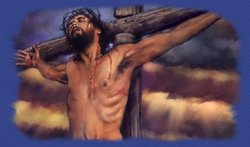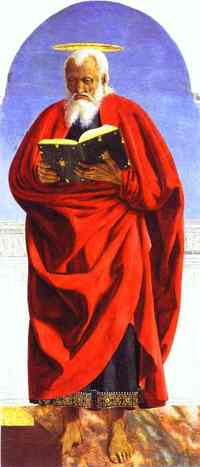Pastor Chad Kendall just e-mailed me to say that at his congregation his senior pastor and he has have been devoting their Advent and Christmas sermons to Christmas hymns. He offers this sermon.
Reverend McCain,
I received your email about the wonderful hymn. It just so happens that the
Rev. Phill Andreasen and I have selected Advent hymns as the basis of our
sermons for this Advent Season here at Immanuel, Spirit Lake, Iowa. We did
the same for Christmas Day. The sermon I had selected for its beautiful
words is TLH 77, “All My Heart This Night Rejoices.” I had just finished
writing it when I received your email. I humbly send my sermon your way.
Have a blessed Christmas.
Rev. Chad Kendall, Associate Pastor
+++
TLH 77 All My Heart This Night Rejoices-Luke 2:1-20
“All my heart this night rejoices, as I hear far and near, sweetest angel
voices. “Christ is born” their choirs are singing till the air everywhere
now with joy is ringing”(Stanza 1). Is not this a true description of the
Christian church? The church rejoices, your hearts, and my heart included.
Today we come together, and we celebrate the wonderful mystery of God coming
in the flesh and breaking into our world.
If I struggle with anything today, it is knowing what to say on such a
glorious feast day. Christmas Day and Easter Day are the two days in the
church year where I struggle the most with my sermon writing. Some might
say, “well, pastor, these should be the easiest sermons to preach. Truly, I
could probably step into the pulpit and talk all day about the birth of the
baby Jesus.
Our first thought may be that Christmas and Easter preach for themselves
with their popular imagery. The messages of these two feasts are so clear,
it hardly seems that a sermon could add much to the artistic sermon that we
already have in pictures. The birth of the baby Jesus is so miraculous that
it almost leaves me speechless. What more can be said. God came down and
entered the womb of a virgin and was born a baby, thereby entering our
world. We behold the mystery of the incarnation. We behold a glorious
miracles today that took place many centuries ago and it is marvelous in our
eyes.
The chief hymn for today helps us to understand some of the reasons why God
did this glorious thing we call the virgin birth. It is a great Lutheran
hymn, though it is not popular like some of the other standard Christmas
hymns. The more I read the words to it, the more I like it. Stanza 2, “Forth
today the Conqueror goeth, Who the foe, Sin and woe, Death and hell
o’erthroweth. God is man, man to deliver; His dear Son Now is one with our
blood forever.”
Stanza 2 really tells it all. It is not enough for the world to know that
God came into the flesh and was born a baby. Much of the world can look on
and see this little baby in swaddling cloths and be moved to shed a tear. So
often this is where the world takes leave of the Christ. They leave Him in
the manger. They leave Him in the stable, without having room for Him in the
inn of their hearts and lives.
Society only looks upon Jesus when it is appropriate and convenient. The
reality is that our society only wants the niceties associated with this
holy day. You may have seen on the news or read articles on the web which
pointed out that many “mega churches” are closed today.
These churches decided not to have church because attendance would be too
poor, citing that people want to spend time with their families. Hence, no
church. Worldly customs have won the day in our country. Jesus is looked
upon in the manger, people feel their hearts flutter with a “warm fuzzy
feeling,” but then they go about their business.
Not having church because attendance would be too poor due to people’s felt
needs of being with family and opening presents is to be counted as the same
as saying that there is no room at the inn for this little one. “My inn is
full today, thank you very much,” many conclude. Have Him sleep outside of
my life today, perhaps in the stable. I will come for Him again when the
time is right.
Upon pondering the mystery of the birth of the little baby Jesus, we would
think that people would have lined up to behold God’s face, but they didn’t.
Just a couple of shepherds came in awe, eagerly desiring to see what the
angel had prophesied. We shouldn’t expect anything different from society
today. Until a person understands why God came in the flesh, he will only
cast a passing glance at this babe in the manger.
Our hymn preaches a sermon of its own, telling us why God did what He did.
The beautiful and serene picture that the world loves to behold on this day
tells a different story than what can be seen in the manger at first glance.
So it is, that though this day speaks for itself, a sermon must be preached,
a story told, because it is what comes after this beautiful scene that the
world wishes to ignore.
Stanza 2 hints to us that “God is man, man to deliver. His dear Son Now is
one With our blood forever.” He must be made man to deliver, and He has
blood running through veins, just like us. He became like one of us. There
is more here than meets the eye, and the world doesn’t see it.
God’s love for mankind is seen in this birth. Stanza 4 says, “Should He who
Himself imparted aught withhold from the fold. Leave us brokenhearted?
Should the Son of God not love us, Who to cheer Suff’rers here, Left His
throne above?” And Stanza 5, “If our blessed Lord and Maker Hated men, would
He then be of flesh partaker? If He in our woe delighted, would He bear all
the care of our race benighted?”
We find that the hymnist is confessing that God’s love is made known in this
miraculous birth. The hymnist also tells us that Jesus, the 2nd person of
the Trinity left His throne above in order to cheer the suff’rers here.
There is something more to this miraculous birth than meets the eye. There
is more to God becoming a flesh and blood man than is readily apparent.
We find it explained by the hymnist in stanza 6. “He becomes the Lamb that
taketh Sin away and for aye full atonement maketh. For our life His own He
tenders and our race, by His grace, meet for glory renders.” Interestingly
enough, the writer of this hymn was a fantastic theologian, for in stanza 6
he shows us that it is not enough to just look upon this sweet and beautiful
baby in the manger. This is where the world leaves Him. We cannot. He would
not remain this way.
In stanza 6 a sermon is being preached. He is bringing us beyond the
captivating gaze which leaves us speechless and brings us to a different
picture than what we find on this blessed Nativity of Christ. Paul Gerhardt,
the writer of this hymn, is bringing us to the cross. Good Friday cannot be
separated and ignored from this blessed scene. “God is man, man to deliver,
His dear Son Now is one with our blood forever (stanza 2).
We have to understand that this sweet baby, God in the flesh, will become a
man. Many will be divided because of Him. He leaves this world giving the
world a very different picture than what we see today. The church sees His
blood being spilled onto the cross and onto the soil. The Christian church
sees sadness, suffering, one who is forsaken and left alone. It might seem
odd and a bit disruptive to give my audience such a picture on such a happy
and joyous day.
Yet, this day of celebrating His birth would not be a happy and joyous one
if it were not for this gruesome scene on the cross. Perhaps the world
doesn’t want the joys of the cross. Perhaps they are content to just glance
at the serene and peaceful scene of the baby in the manger, His mother Mary,
and Joseph looking on with a glow.
Christians must look beyond and see the real meaning of Christmas. Jesus
took on flesh, our flesh, in order to spill that blood which He has in
common with us. He came in the flesh because He would pay what is due: He
would pay what we owe. Our flesh is corrupt, we were born at enmity with
God. Jesus comes with a holy and righteous flesh. He comes with a flesh that
is holy and righteous and without sin. Jesus was born so that He would die
in our place. He would suffer hell so that we wouldn’t have to.
So, you see, because of our sinful flesh, we need a sermon on Christmas Day.
We need Him to enter our world again and again. As awe-filled as the
Christmas Day picture is, it is not enough to just gaze upon the manger
scene and stay home, cancel church, and skip the sermon. We need to be
preached to from the wood of the manger to the wood of the cross because
there is a reason Jesus took on flesh. There is a reason that blood flowed
through His veins.
He did it for the life of the world. He came to die so that everyone might
have life in Him. Though all mankind is still plagued with sin, believers
know that they will never experience spiritual death, because Jesus
experienced it in our stead. So it is that the Christian sings this
beautiful Christmas hymn and closes it out with stanza 15, “Dearest Lord,
Thee will I cherish. Though my breath fail in death, Yet shall I not perish,
but with Thee abide forever there on high, in that joy which can vanish
never.”
Christmas is about Jesus coming to be that Lamb that taketh away the sins of
the world, and this is the church’s joy on this Christmas morn. Amen.
Rev. Chad Kendall, Associate Pastor
Immanuel Lutheran Church
Spirit Lake, Iowa
The Feast of the Nativity, 2005



